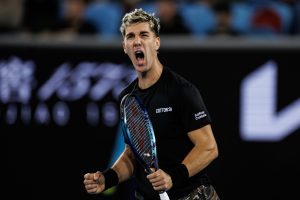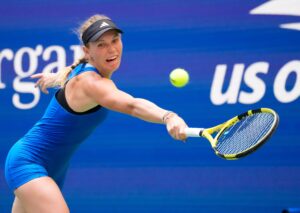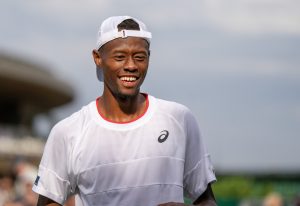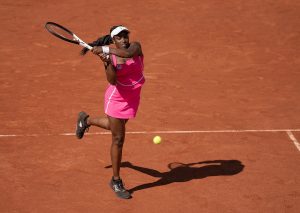Former world #1 and 2003 Roland Garros Champion, Juan Carlos Ferrero, spoke exclusively to The Double Bagel Podcast last week about his playing career and what he has been doing post-retirement. The 40-year-old retired in 2012, and has been active in the tennis world by managing two tennis academies in the world- one in Spain and one in China, and has coached Alexander Zverev, and is now coaching 16-year-old Carlos Alcaraz.
Listen to the full podcast here.
Toughest member of the “Big Three” to beat and play against
Ferrero is one of the few players in history to have beaten every member of the ‘Big Three‘ at some point. I asked him out of the three, who was the toughest to beat and why.
“Rafa definitely on clay was most difficult to beat. Then on grass, I think Roger was the most difficult to beat. On hard court, let’s say Djokovic. But if I had to choose one, I would say Roger. Because his kind of game, he can do every kind of shot on any surface. It’s something that when you face him, it’s really difficult to compete.”
Dealing with the pressure of being world no.1
After winning Roland Garros in 2003, and later of that year, he became the second Spaniard after Carlos Moya and the 21st player in history to hold the ATP world #1 ranking. Many players such as Naomi Osaka and Angelique Kerber have openly said they struggled to handle with the pressure when they achieved that ranking. I asked Ferrero, looking back, how he dealt with that pressure, or if he felt any pressure at all.
“Let’s say once you get there. It’s something to enjoy. Obviously, if you have to feel the pressure every week, it’s better not to be #1. You dream of that since you’re a kid, and it has to be something that when you have it, you have to enjoy it. [If] you use it as a pressure that you cannot play, it’s because here [mentally], you are not thinking in a good way.”
“I didn’t do anything special to handle it. Obviously I didn’t stay at that number many weeks- 2 months. It happened too fast. But once I got that number, I enjoyed every match and I was trying to working hard as before. For me, it’s something you have to enjoy. Not to feel that pressure for every match.”
Post-retirement activities
Since retirement, Ferrero has been heavily involved in his JC Ferrero – Equelite Academy in Spain and China. We discussed what his philosophies are and his values for his tennis academy.
“We live with them (students) and we love to grow as a family. it’s something we try to do. I think that’s a big difference with people who train and work at their academies and they go to their [normal] homes and are away from the players Here, we are a big family. I think the players feel this… The academy is my home and I even live here with my kid and family. This place is very special for me.”
The Younger Generation Today
“Obviously when you are young, you have money, you have everything. You think you are one of the best tennis players on Earth, you have everything in your hands. Obviously, there are a lot of distractions with young people, they have telephones, social media, Instagram all this kind of things. [It makes them] not wholly focused on tennis- they are thinking what they have to show on the telephone, what people think about them on it.
“People of my age, when we were younger, we were more focused on tennis. Think about what I missed today, what I have to do to be better tomorrow. We thought about tennis all the time. It’s a different situation [now].”
Coaching
In July 2017, the Spaniard started working with then-world #11 Alexander Zverev. Under his tutelage, the German won the Rogers Cup, beating Federer in the final. However, only after eight months, they parted ways due to several differences between them. We discussed what ultimately caused the split, and how Zverev can improve.
“Let’s say it was a way of to be out of the court [that caused the split]. I think I had different ideas what is the way to be a professional out of the court- like eat, have rest, how to deal with rest of people of the team. We had differences over there and at the end, we thought it was the best not to continue.”
“He needs to first open his ears, and to listen to people who have more experience than him in what he needs. But obviously, he will grow up and be 24 or 25 and I think he will think these things by himself.”
Main photo:
Embed from Getty Images






